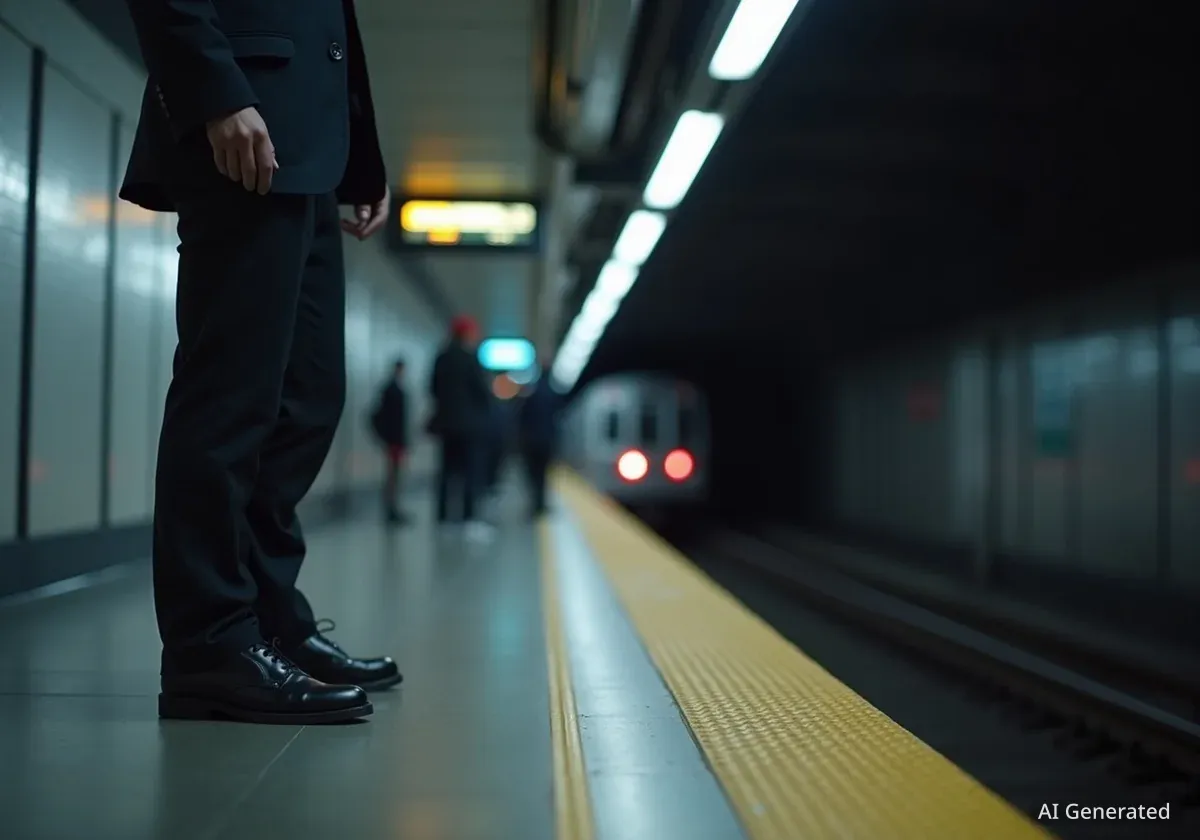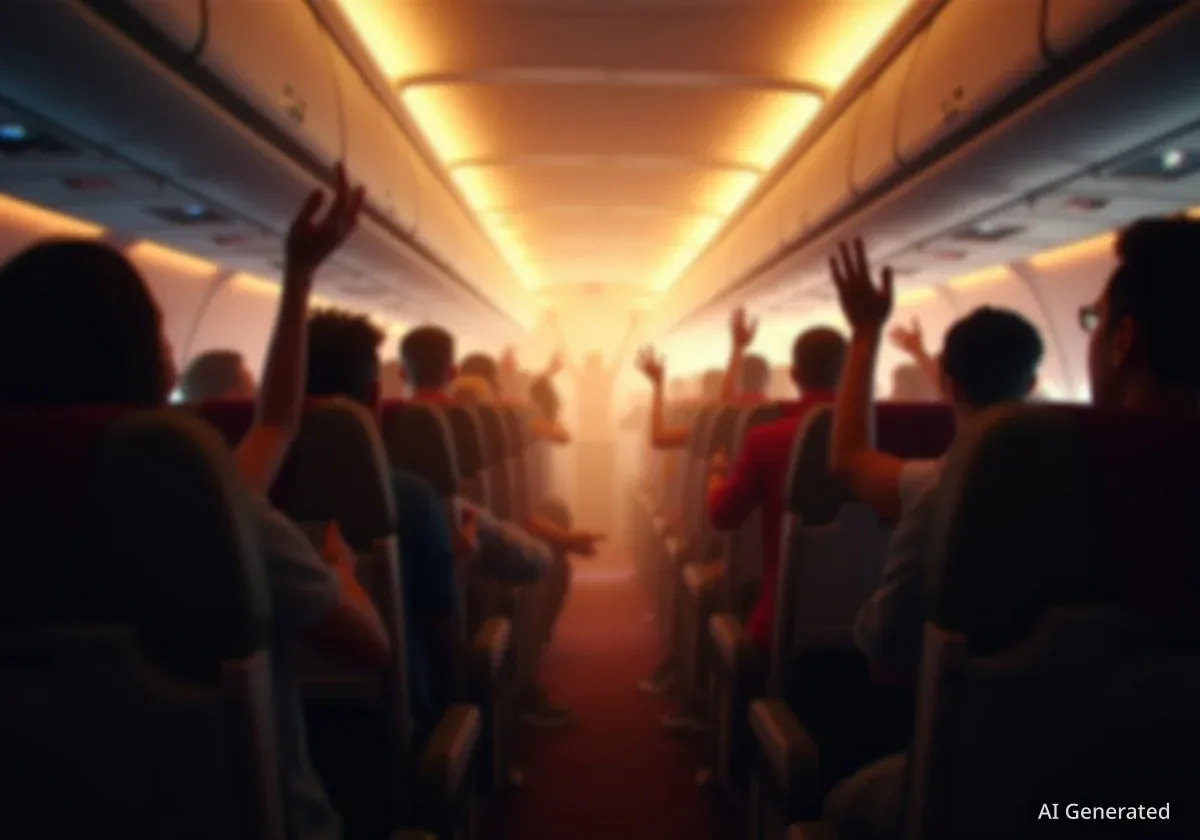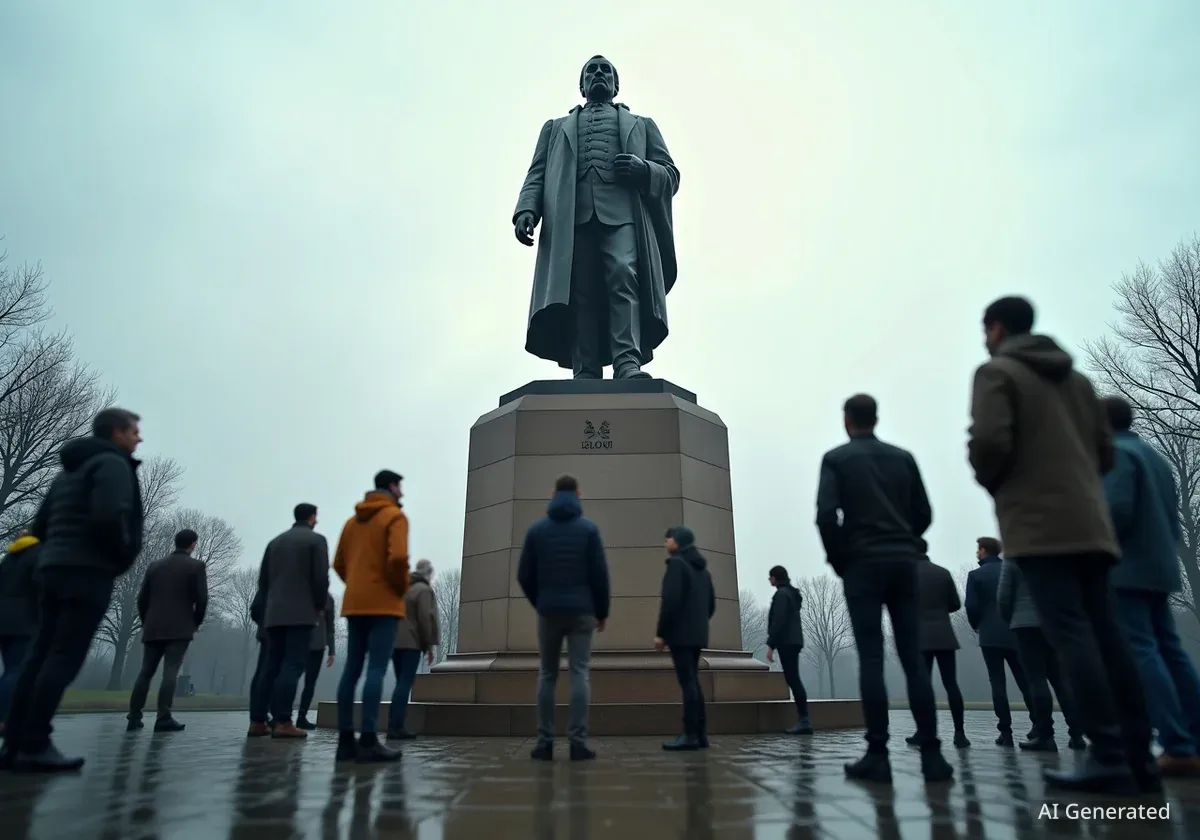Toronto Mayor Olivia Chow announced a new pilot project on Wednesday that will place crisis workers on portions of the Toronto Transit Commission's (TTC) Line 1 subway platforms. This initiative, set to begin on November 15, will provide 24/7 support for individuals in crisis, aiming to enhance safety and improve rider experience on the transit system.
The program targets the 'U' section of Line 1, a busy part of the subway network. This move comes as the city seeks to address growing concerns about safety and mental health incidents on public transit.
Key Takeaways
- Crisis workers will begin deployment on TTC Line 1 on November 15.
- The pilot project will offer 24/7 support on the 'U' portion of Line 1.
- Three teams of highly visible crisis workers will respond to incidents.
- The initiative aims to improve safety and increase TTC ridership.
- The program will be evaluated before potential expansion to other stations.
New Approach to Transit Safety
Mayor Chow stated the project's goal is to create a safer and more welcoming environment for commuters. She emphasized that improved safety and service are essential for increasing ridership and reducing road congestion in Toronto.
During a press conference at Wellesley Station, Mayor Chow highlighted the importance of a coordinated response to crisis situations. She explained that the new teams would bring together various resources to provide appropriate care and services.
TTC Crisis Calls
- In 2024, TTC special constables responded to over 1,028 calls for persons in crisis.
- A 2025 survey found only 16 percent of respondents felt safe using public transit.
- The Toronto Community Crisis Service (TCCS) has handled approximately 29,000 calls to date.
The pilot will involve three teams of crisis workers. These workers will wear highly visible uniforms, making them easily identifiable to the public. They will be stationed at key locations but will be mobile to respond to calls across the designated section of Line 1.
"Better safety and better service is how we bring riders back, unclog our roads and get Toronto moving," Mayor Chow said in a news release.
Deployment and Accessibility
The Toronto Community Crisis Service (TCCS) workers will primarily be based at Spadina, Union, and Bloor-Yonge stations. From these central points, they will be dispatched to respond to calls for assistance. Riders can access these services through several channels.
Commuters can use the SafeTTC app, speak directly to TTC staff, or call 211. The SafeTTC app's "Wellness Check" option will allow users to report their location or the vehicle number, enabling a quick response from crisis teams.
About TCCS
The Toronto Community Crisis Service (TCCS) was launched in 2024 by Mayor Chow. It provides free, in-person mental health support to residents. Leshar Willis, manager of the central division of TCCS at Gerstein Crisis Centre, noted that 78 percent of mental health calls they receive are resolved without police involvement.
Addressing Rider Safety Concerns
TTC CEO Mandeep Lali emphasized that safety is a fundamental aspect of the customer experience and crucial for increasing ridership. He stated that safety is "the DNA of the TTC" and paramount to its operations.
A recent survey, the 2025 Listening to Toronto survey, revealed significant public concern regarding transit safety. Only 16 percent of respondents reported feeling safe as public transit users. This statistic underscores the need for new safety initiatives.
Councillor Chris Moise (Toronto Centre) supported the pilot project, calling it a "crucial step forward" for Toronto's community safety and well-being plan. He highlighted that Toronto police and TTC special constables received 857 calls related to safety, security, and well-being in August alone, indicating a consistent demand for support.
Police Partnership and Response
Toronto Police Chief Myron Demkiw welcomed the partnership with TCCS. He noted that police officers are highly trained for crisis situations but acknowledged the value of specialized mental health expertise. This collaboration allows each service to focus on its strengths.
"Treating mental health as a healthcare issue allows everyone to focus on what they do best. Toronto community crisis service teams bring specialized mental health expertise to our transit system, while our officers help ensure a safe environment, prevent crime and disorder and enforce the law," Chief Demkiw stated.
Chief Demkiw also clarified that most mental health-related calls do not involve violence. However, if situations become dangerous, police officers remain readily available to intervene. He stressed that the new program complements, rather than replaces, police presence on the transit system.
Future Evaluation and Expansion
Mayor Chow confirmed that the transit agency will carefully evaluate the pilot project's success. The results of this evaluation will determine whether the program will be expanded to include all subway stations across the network.
The mayor plans to present a detailed proposal about the project to city council on October 8. This presentation will provide further information on its implementation and expected outcomes.
Project Timeline
- November 15: Crisis workers begin deployment on TTC Line 1.
- October 8: Mayor Chow to present project details to city council.
The introduction of crisis workers represents a shift towards a more comprehensive approach to public safety on Toronto's transit system. It aims to provide specialized support for mental health crises, freeing up police resources for other duties while enhancing overall rider security.
Community and Political Reactions
While the initiative has broad support, some officials believe more is needed. Councillor Brad Bradford (Beaches-East York) expressed appreciation that the mayor acknowledged transit safety issues but felt the pilot project did not go far enough.
Bradford argued that crisis response workers are only one part of the solution. He suggested they might do little to prevent assaults on platforms or vehicles, which he believes are significant factors deterring riders.
"Crisis response workers are part of the equation, but they do very little to keep riders safe on a platform or on a vehicle during an ... assault," Councillor Bradford said. "These are the types of situations that are really keeping people off the TTC right now."
Instead, Bradford advocated for a greater presence of transit police officers and special constables. He believes that seeing uniformed law enforcement personnel provides a sense of comfort and security for riders. The current program, he noted, does not directly address this specific need.
Despite these differing views, the pilot project marks a notable effort by the City of Toronto and the TTC to enhance public safety and address the complex challenges faced by transit users.





